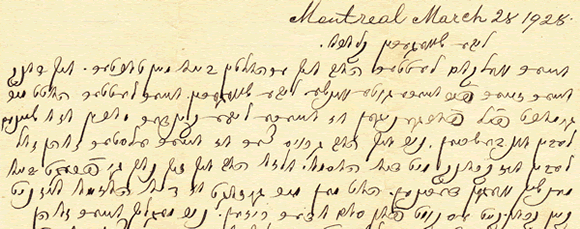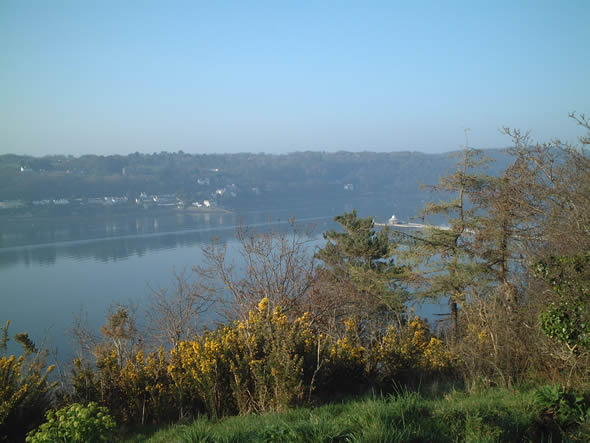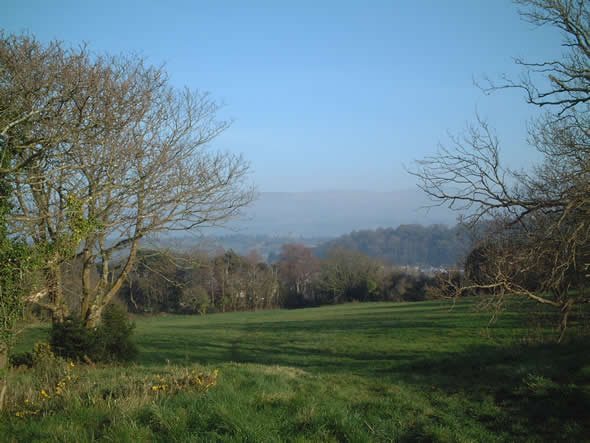This image was sent in by a visitor to Omniglot who saw the inscription while walking in the Pennines.

Does anyone have an ideas what, if anything, it might signify?
This image was sent in by a visitor to Omniglot who saw the inscription while walking in the Pennines.

Does anyone have an ideas what, if anything, it might signify?
I thought that the word honcho as in head honcho (big leader / big cheese) came from Japanese. The OED and the Online Etymology Dictionary both say that it comes from the Japanese word 班長 (hanchō) or squad / team leader, and that it was borrowed by American servicemen in Japan and Korea in 1947-1953.
However, according to The Basque History of the World by Mark Kurlansky, which I’m reading at the moment, the word honcho is a version of the Basque word jauntxo /xaunʧo/, a wealthy. powerful, rural landowner – a word with a ironic, negative undertone. From jaun (sir / lord / god). This sounds kind of plausible, though I haven’t found any other sources which make the same claim.
The book is interesting and includes quite a few bits of Basque language, and even some recipes. It is also somewhat biased in favour of the Basques.
Here’s a recording in a mystery language.
Can you identify the language, and do you know where it’s spoken?
According to the 2011 Irish census, the number of people who use Irish in Ireland as their everyday language outside school is 82,600. Many more speak it, but only in school, or rarely, This compares with 119,526 people who speak Polish at home and 56,430 who speak French. The census also found that just 35% of people in the Gaeltacht areas use Irish on a daily basis outside the education system. These are areas where Irish is the main language, in theory.
Source: BBC News
According to the Irish Times:
… there was a 7.1 per cent increase in the number of people who said they could speak Irish from 2006, giving a total of 1.77 million people in the Republic who indicated they speak Irish. Of those, 77,185 people speak the language daily outside the education system; 110,642 say they speak it weekly, while 613,236 said they spoke it less often. One out of every four say they never speak the language.
The census returns give no indication of the proficiency of these Irish speakers – some might only speak a few words, while others are fluent. It’s interesting that a quarter of people who can speak Irish never do so. I wonder why.

The other day I discovered that the thing I clean my windows with is a squeegee – I was familiar with the name, and knew it had something to do with cleaning, but wasn’t sure exactly what a squeegee was. From the sound of the name I guessed that it was a soft, squeezy kind of thing, which doesn’t quite match a window cleaning squeegee.
According to Wikipedia:
A squeegee, squilgee or sometimes squimjim, is a tool with a flat, smooth rubber blade, used to remove or control the flow of liquid on a flat surface. It is used for cleaning and in printing.
The original squilgee was a long-handled, wooden-bladed tool fishermen used to scrape fish blood and scales from their boat deck, and to push water off the deck after it had been washed.
According to the Online Etymology Dictionary, the word squeegee come perhaps from the nautical word squeege (to press), a strengthened form of squeeze, which the OED suggests is a strengthened form or quease (to press, squeeze).
Are there any tools of other implements you use that you don’t know the names of?
Here’s a recording in a mystery language.
Can you identify the language, and do you know where it’s spoken?
I came across an interesting article on the BBC News website today about the predominant use of British accents for characters in fantasy worlds, such as the Game of Thrones and Lord of the Rings. Game of Thrones is apparently aimed at American audiences, adapted from books by George RR Martin, an American author, but almost all the characters speak with British accents. Also for historical dramas in English the default and expected accents are generally British. The article suggests that British accents add a “splash of otherness” to such productions, at least for American audiences.
On the other hand for fantasy films and TV series set in the future, on other planets and/or in space, American accents are probably more common than British accents. Although there are exceptions, such as Red Dwarf and The Hitchhiker’s Guide to the Galaxy, and some characters in Star Trek.
In plays, particularly those by Shakespeare, the default accent is RP (posh), although quite a few of the puns and jokes don’t work in that accent. Some productions in original pronunciation (OP) have also been staged, and were well received. In other English-speaking countries do Shakepearean actors speak in the normal accents, or do they use RP?
Are different regional or national accents associated with particular time periods in films in other languages?
Here’s a recording sent in by Dave Murrary of Haji Maji, a blog about old 78 records from Asia.
Part of the recording with the spoken words:
The whole recording:
This comes from a record which has a picture of two Buddhist monks and the phrase “sixth Buddhist convention” on the label. According to a native Burmese speaker Dave asked, the language isn’t Burmese.
Do you have any idea what language is spoken at the beginning (it’s only a few words) and do you the recognise the style of music?
Can anyone recognise the script below?

It was sent in by a visitor and comes from an old letter. It looks like it’s written from right to left and might be a cursive form Hebrew.

Va’n emshir braew yn jerrey shiaghtin shoh. Va grian ayn, v’eh çheh, va’n speyr gorrym as cha row geay erbee ayn. Va’n keayn lane rea as v’eh casley rish scaaney. Fastyr jiu hie mee heose dys Roman Camp as ren mee cleasaght.

The weather’s been lovely this weekend – sunny and warm with blue sky and not a breath of wind, and the sea was beautifully calm and mirror-like. This afternoon I went up to Roman Camp to do a bit of juggling.